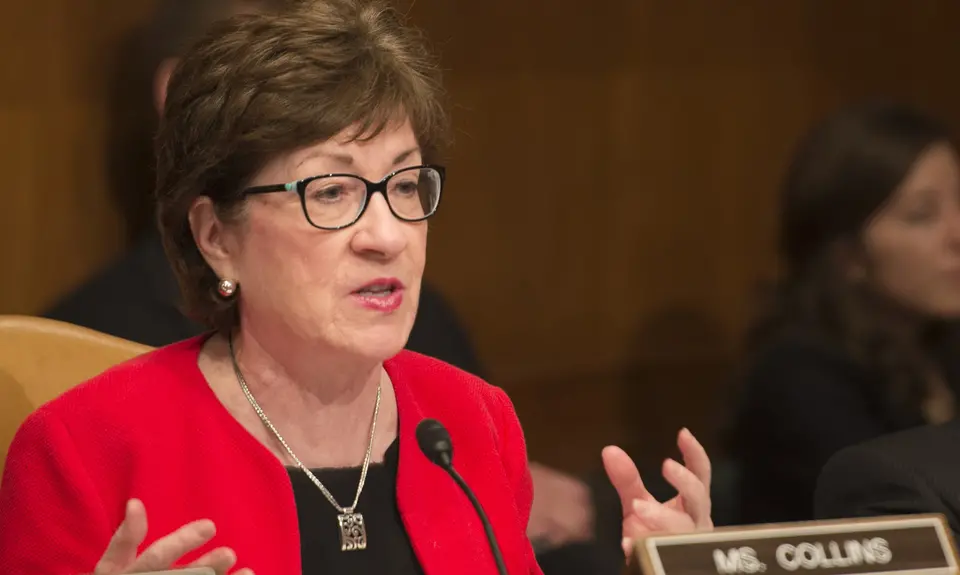Days after Alabama's near-total abortion ban was signed into law in May 2019, Maine Senator Susan Collins, a self-identified pro-choice Republican, feigned surprise at the development, calling the law “terrible” and "very extreme." Collins, inexplicably, says she isn't "exactly sure why we're seeing this happen."
But it’s not hard to see through Sen. Collins’ protestations, especially after she ignored now-Justice Brett Kavanaugh’s anti-choice record with her key vote to confirm him – and cement an ultra-conservative Supreme Court majority for decades to come.
Justice Kavanaugh’s confirmation gave anti-choice extremists their best opportunity yet to dismantle Roe v. Wade—and they’ve aggressively seized it by proposing and enacting a tidal wave of sweeping abortion restrictions across the South and Midwest. Especially considering Sen. Collins' critical vote to confirm Kavanaugh, her claim that she is perplexed by these targeted anti-choice attacks simply does not pass muster.
Sen. Collins has been quick to capitalize on voters belief in her claimed commitment to protecting the right to choose. However, despite this ongoing rhetoric and her promises to act in the best interest of her constituents who are entitled to reproductive health care, it's becoming increasingly clear that her position is nothing more than political posturing. Rather than demonstrate her commitment to choice, Sen. Collins has relentlessly voted to threaten the future of abortion care and gender equity, particularly in regard to her support of anti-choice judges who threaten the future of reproductive rights.
According to a Collins spokesperson, Sen. Collins has supported over 90 percent of Trump’s picks for lifetime federal judicial positions, including 32 nominees who have clearly indicated they oppose abortion rights (not to mention those Trump nominees who are likely anti-choice based on their far-right ideologies, despite not having a clear record on the subject). In addition to her votes to confirm Justices Gorsuch and Kavanaugh, some of the most dangerous judges that have received an affirmative vote from the senator include:
- Eric Miller, who argued that federal military medical insurance should not cover the costs of an abortion in the case of an anencephalic pregnancy with no chance of survival upon birth and once submitted an amicus brief supporting an Ohio law banning a safe abortion procedure.
- Stephen Clark, who has perpetuated fraud in cases involving abortion access by claiming that “contraception increases the risk of breast cancer, heart attack, stroke, cervical cancer, and liver cancer (among other threats).”
- Andrew Brasher also has a troubling history—he defended a Targeted Regulation of Abortion Providers (TRAP) law similar to one subsequently struck down by the Supreme Court in Whole Woman’s Heath v.Hellerstedt and has used other legal arguments to perpetuate myths about abortion.
During the nomination proceedings for Justices Kavanaugh and Gorsuch (whom she also voted to confirm), Collins assured her constituents and the public that she had spoken with the nominees and felt confident in their commitment to precedent in regard to Roe. However, recent rulings by the Court have signaled that neither justice honors this fundamental precedent and could let their personal beliefs influence their decisions. Of course, that's just what anti-choice activists are hoping for. Without the Supreme Court’s protection, the future of abortion rights and access to care looks bleak to say the least.
Donors from across the country have continued to pour money into Collins' upcoming 2020 campaign, but recent polls indicate a dramatic 17-point drop in popularity since she confirmed Justice Kavanaugh. That's why it's especially critical that we continue to hold Collins accountable for her disingenuous rhetoric and her extreme anti-choice record.
